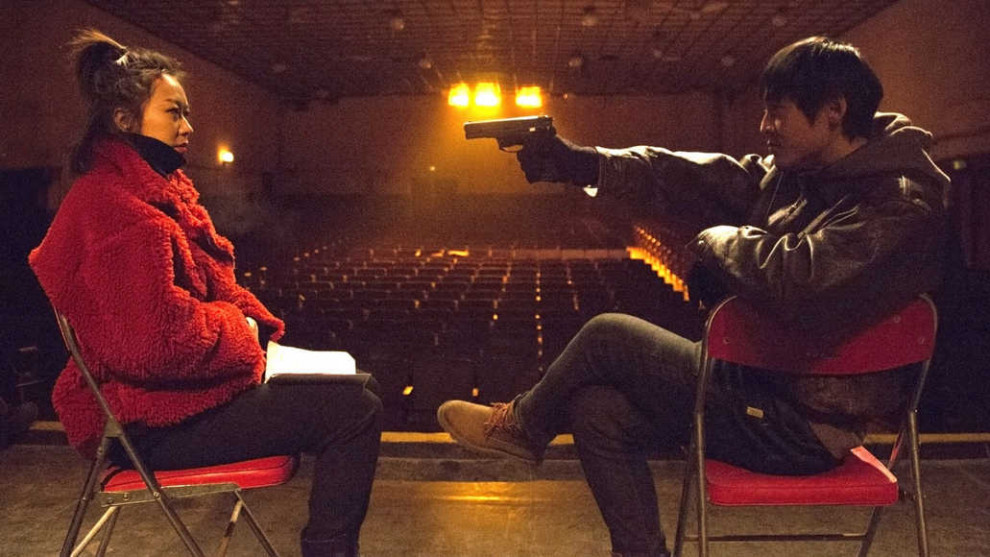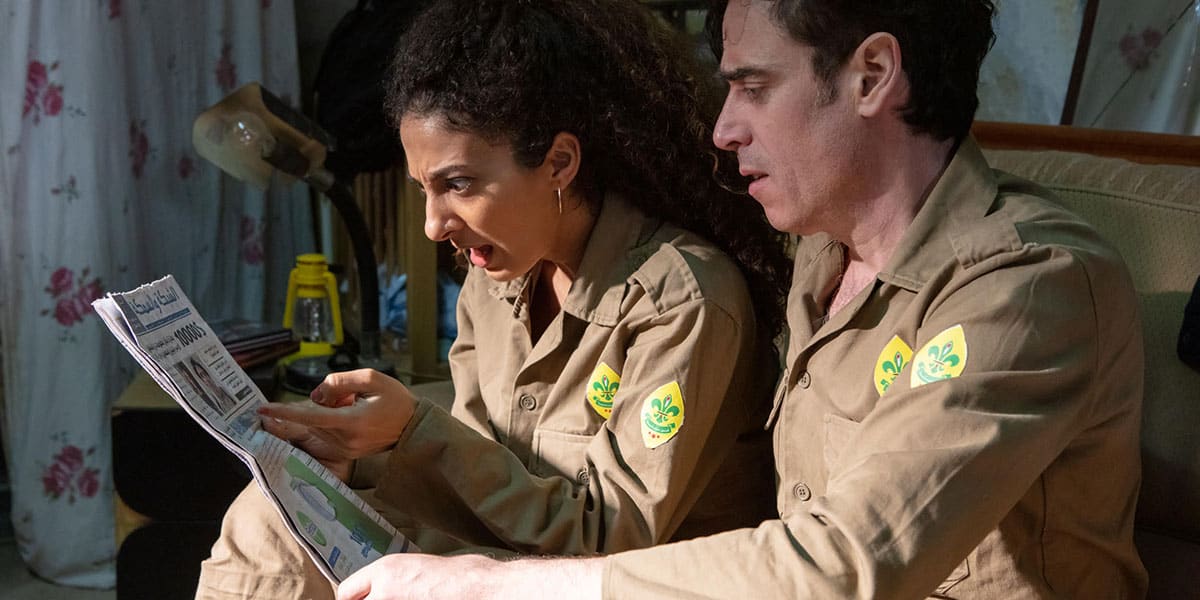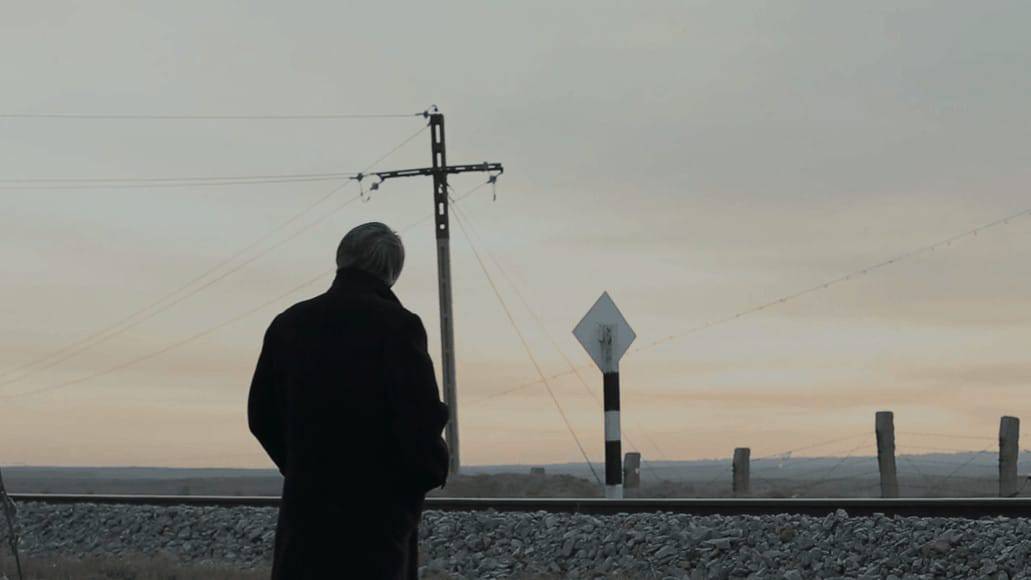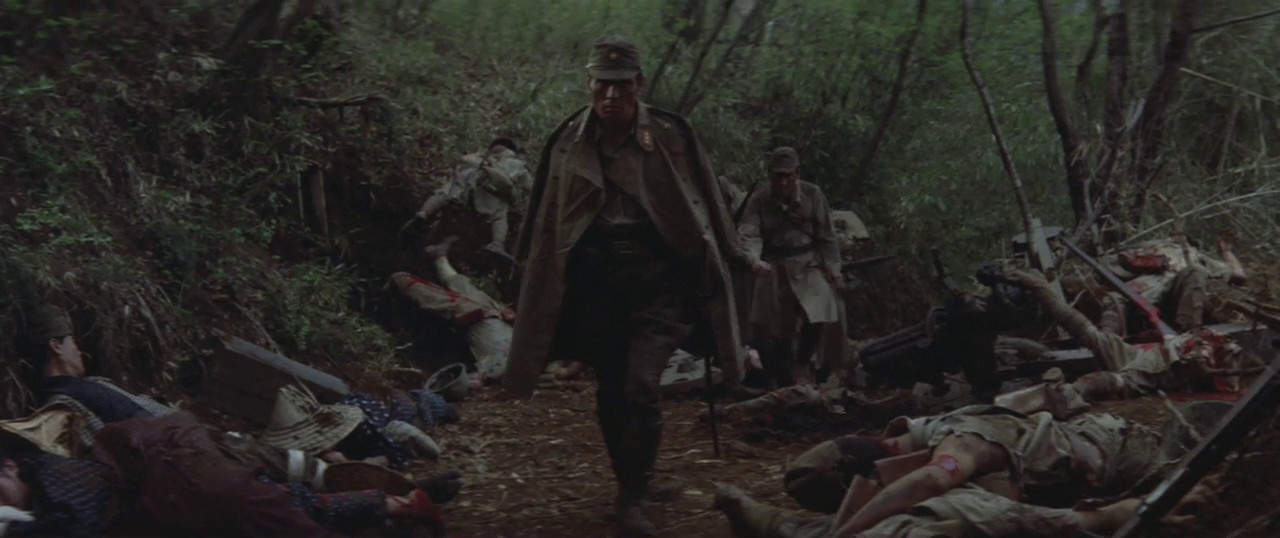Another excellent first feature comes this year from the duo Zhang Chong and Zhang Bo who co-directed “The Fourth Wall” from a script by Zhang Bo and Qi Hao. The film had its World Premiere recently at the prestigious Shanghai International Film Festival in the Asian New Talents Section, where was also picked up by Fortissimo Films, for future distribution.
The film has indeed an imaginative and well-structured script that was allegedly inspired by a trip to Africa and a mind opening experience in its primal nature.

Liu Lu (Liu Lu) works at an isolated Sika deer breeding farm. She is a hard and solitary worker; her life looks as grey as the sky above her, her eyes dull and resigned. One day this shield of safe uneventfulness begins to show some cracks as Liu finds a hole in the fence that confines the farm and deer no. 042 appears to be missing. Upset for the accident, Liu reports it to her Shifu but it is New Year's Eve and even her superior wants to be out and celebrate, postponing the search to the following day. That night, an old friend, Ma Hai (Ziyi Wang) visits Liu and tries to cheer her up, showing what looks like a sincere affection for the young woman. Ma wants to takes her away from there, away from her joyless life at the farm and from her isolation, but Liu obstinate resistance betrays a deep-rooted fear. Ma decides then to confess something extremely strange that is happening to him; for quite some time, he has been having some very lucid visions or, more precisely, some vivid memories of them in another place, a parallel world where him and Liu have different lives and destinies, and he starts to recount his visions to her.
In this “other” life Liu is a divorced former actress, working in a supermarket as a travel agent, dancing in a gaudy sari, advertising exotic destinations. A masked man enquiring about a trip to Madagascar approaches her and later he will reveal his identity. He is Ma, her old school friend, who has been a fugitive for many years due to a certain accident and when he asks her to spend few more hours with him and talk about the past, she decides to accept. Their shared past and what happened in the years after school is very different from the other Liu and Ma, but slowly the two parallel worlds start to overlap and reality and illusion become indistinct.

“The Fourth Wall” is an absolute slow burner. It starts silent, quietly following Liu alone in her deer duties in a grim realistic fashion, and after introducing Ma, gradually becomes more and more complex and layered, with an unexpected turn into a magical realism mode, punctuated with elements and clues to help us disclose the past of the protagonists. Then the suspense builds up and the story takes a thriller twist, reaching its climax on the stage of an abandoned theatre, to eventually descend slowly towards forgiveness and, in full circle, all the clues will fall into places, creating an extremely satisfactory effect and the feeling of a proper metamorphosis.
The fourth wall, in performance jargon, is the imaginary wall that separates the actors from the audience, a wall only the public is aware of, while the actors – conventionally – ignore it. Liu is an actress locked in the part she has chosen to play, the result of denial and forced suppression of painful memories. Her subconscious mind has bottled up her emotions and erased her past but awareness is forcing its way out, is breaking the fourth wall between her and her illusory mirror image; the fourth wall that is blocking her path to acceptance and her chances to move forward in life.

Almost a stage a play, “The Fourth Wall” is proof that a small budget, two locations and two accomplished actors can do wonders with a clever and original script. Liu Lu and Ziyi Wang are fascinating to watch in their “sliding door” portrayals of two damaged people and their doubles, effectively discerning the personalities that the different life paths have shaped. Followed by a hand held camera, they comply with the realistic mood of the filming in neat contrast with few final scenes in the African nature, suggesting a higher level of universal consciousness.
“The Fourth Wall” with its recurrent theme of theatre and performance is a compelling metaphor of life as a stage, and the script is rich in symbols and double-entendre, making the film a touching allegorical representation not only of Liu's depression and mental disorder, but also of her cathartic healing process. It is, in my opinion, one of 2019's “must-see” Chinese works.















